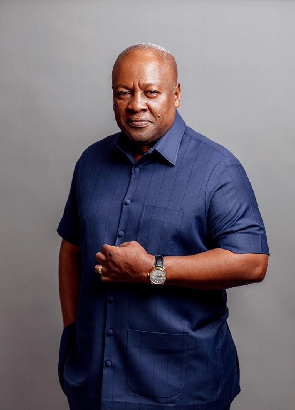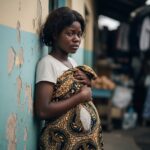At the Africa Health Sovereignty Summit in Accra on August 5, 2025, President John Dramani Mahama charted a new course for Ghana’s health sector by announcing two complementary initiatives designed to reclaim domestic leadership over healthcare governance and financing. Against a backdrop of dwindling donor support and persistent system vulnerabilities, the Ghanaian President introduced the Presidential High-Level Task Force on Global Health Governance alongside the Sustain Initiative—Scaling Up Sovereign Transitions and Institutional Networks—reaffirming his administration’s commitment to resilience, equity, and national self-reliance.
The newly formed task force will serve as a strategic platform to convene African, global, and continental partners in a collaborative re-design of health governance systems. President Mahama, stressed that traditional decision-making structures have failed to adapt to contemporary challenges, declaring, “The world has changed, but global health governance has not kept pace”. By leveraging high-level dialogue and strategic alignment, the task force aims to reshape international and regional frameworks so that they respond to the real-time needs of Ghanaian communities rather than perpetuate outdated models inherited from colonial and post-war eras.
Complementing this governance overhaul, the Sustain Initiative will focus on harmonizing Ghana’s national budgetary processes with clear health priorities and on diversifying the pool of health-sector resources. His Excellency, the President of Ghana, John Dramani Mahama, explained that the initiative will “mobilise domestic, diaspora, and philanthropic funding into health systems,” while facilitating cross-border learning and strengthening accountability mechanisms within government institutions. This multifaceted approach reflects a growing recognition that over-dependence on volatile external aid jeopardizes core services, from maternal health to preventive campaigns, when funding abruptly shrinks.
The President cited the immediate fallout from a sharp drop in development assistance in 2023, which saw critical programs stall across the continent.
“ In Ghana, our community-based health delivery system, known as the CHPS Compound Programme, nearly collapsed after donor withdrawals ”
President of Ghana, John Dramani Mahama

He emphasized how a reliance on external grants had eroded the country’s capacity to sustain primary care networks in remote districts. By unlocking domestic financing avenues, the government seeks to build buffers against global economic shocks and keep frontline services fully operational.
President Mahama’s administration has already begun reallocating resources to fortify the National Health Insurance Scheme (NHIS). He announced that the scheme’s financing cap had been lifted, freeing an additional GH₵3.5 billion to extend coverage and reduce out-of-pocket spending for vulnerable families. This bold financing move marks one of the largest domestic injections into Ghana’s health sector and signals a shift away from donor-driven budget lines toward self-sustaining revenue streams underpinned by national policy.
Looking ahead, President Mahama disclosed plans to launch a new primary healthcare programme with technical support from the World Health Organization. He noted that WHO Director-General Dr Tedros Adhanom Ghebreyesus has committed a team of experts to assist in designing integrated care pathways that leverage digital links between community-level CHPS facilities and regional hospitals.
As a testament to this model in action, President Mahama recounted the story of a young mother in Dodowa who survived severe childbirth complications because her local CHPS compound was digitally connected to a referral hospital, illustrating that “This is not a future vision. It is already happening. This is health sovereignty in action”. Beyond financing and governance, the President called for continued investment in home-grown digital platforms and supply-chain innovations.
He singled out PanaBIOS for health verification, Propa for real-time monitoring of medical commodities, and BioNTech’s vaccine development efforts as examples of partnerships that can enhance Ghana’s health-security and emergency-response capabilities. By integrating these technologies with the NHIS and community volunteer networks, the government aims to create a cohesive ecosystem that delivers preventive, primary, and specialist care seamlessly.
As African leaders debate the Accra Declaration for Health Sovereignty, the First Gentleman of Ghana, John Dramani Mahama, positioned the document as a moral and strategic milestone rather than a mere policy paper. “It is a moral call to action. It is a strategic milestone for Africa,”

he asserted, urging governments on the continent to reclaim ownership of their health agendas. He concluded with an impassioned appeal: “Let Africa rise and take responsibility. Health is not a luxury. It is our freedom, our dignity, and our most valuable public good”. With these pronouncements, Ghana’s President has set in motion an ambitious road map for health sovereignty—one that places domestic leadership, innovative financing, and grassroots resilience at the forefront of national development.



